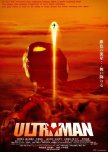
A fine jumping on point for the uninitiated
What I appreciate about Ultraman is that it has so many great jumping-on points for people looking to get into the series; although The Next is one of the weaker starts I've seen, it is a noble attempt to update the formula with a much more adult tone. Particularly considering this was Tsuburaya's big attempt to revitalise the character after the problematic circumstances surrounding the broadcast of Cosmos. It's a more than welcome reimagining.There's some lovely direction by series veteran Kazuya Konaka, particularly in its Top Gun-inspired opening. Great character work and performances, especially from Tetsuya Bessho and Kenya Ousumi, plus a banging soundtrack from rock artist Tak Matsumoto who provides brilliant updates to the classic themes. I do like Ultraman's new design despite it being a bit out there due to how radically different it is from the original but the updated Bemular is a truly frightening creation and more than worthy of praise.
Where I'm not particularly sold is the rather iffy use of CGI, especially considering how good the model work and suitmation are, and the cheesy dialogue at points that feels like it's trying to appeal to kids despite the tone of the movie is very much skewed towards adults with some pretty horrifying imagery to boot.
Regardless, The Next captures the heart of what makes Ultraman, well, Ultraman. His relentless pursuit of providing hope for humanity in the face of its destruction; while mixing in with the inner turmoil of its host who has more than his fair share of skin in the game. It offers up some extremely entertaining and well-executed monster fights and hits the right stride for those wanting a slightly more mature tone for the series. It's just a shame that the Ultra N Project failed because what we got here is a great basis for a newer take on the character.
Cet avis était-il utile?
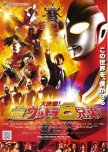
Superior Ultraman 8 Brothers
0 personnes ont trouvé cette critique utile
Open your eyes to the unbelievable
The Multiverse of Madness we deserved. The way this movie is so unapologetic in its portrayal of hope out of hopelessness from its cast of characters is simply beautiful, I can't help but love it unconditionally.On July 17, 1966, best friends Daigo Madoka, Shin Asuka, and Gamu Takayama watch the first broadcast Ultraman television series at Daigo's house. They are inspired to grow up and do great things. 30 years later, the three have forgotten their childhood passion for Ultraman and dreams while continuing their lives as normal civilians. With aliens threatening the utter annihilation of Earth and Daigo experiencing mysterious visions, Ultraman may just provide the key to saving the entirety of mankind.
It does feel odd that despite Ultraman Mebius and Mirai Hibino being the then-current Ultra brother and host on TV at the time, the film instead opts to tell the events from the point of view of Daigo Madoka, the human host for Ultraman Tiga. I'm not complaining mind you. It's great to see what is currently Hiroshi Nagano's final appearance in the franchise and he does so with true style and an unshakeable charm. The first four Ultraman protagonists return in maturer mentor roles yet still get to do the job they started all those years ago, seriously Susumu Kurobe, Kohji Moritsugu, Jiro Dan and Keiji Takamine are all excellent in and out of the suits. It's just a treat for the long-time fans and a beautiful cap-off for the TDG trio.
This was until recently the highest-grossing entry of the entire Ultra franchise, being overtaken by Shin Ultraman very quickly. You can see why this film made the money it did, combining a love for both the Showa and Heisei eras and showcasing the best of both worlds. I have to hand it to director Takeshi Yagi, a Heisei Ultra veteran, for crafting this film in such an exquisite way, the direction, compositing and set pieces are all top-notch and cleanly executed to the highest standards, the CGI work especially which is usually a low point for these productions looks divine. The suitmation work is just consistently beautiful but the final act is where it all comes together seeing all of the Ultra brothers fighting side by side onscreen with some seriously tense emotional stakes just hits the nail on the head.
I take my hat off most of all to writer Keiichi Hasegawa, whose name I'm more than familiar with; penning the likes of GMK, the first two Heisei Gamera films, SSSS.Gridman and numerous episodes of other Ultra shows, including my beloved Tiga. What he has crafted here however is perhaps one of his finest works. The dialogue oozes charm and sophistication in a way that only Tokusatsu can deliver, the right balance of cheesy and serious, hope and cynicism, nostalgic connections and undying charm. There wasn't a moment that went by where I didn't have a smile on my face, it's the type of fan service and nostalgia done right, not for the sake of it being there but for delivering a movie that utilises them to great effect and analyses why we have such affection for them.
The movie deconstructs the character's admiration for the ideal of hope rooted in their consumption of fantasy entertainment. How the nostalgia we have for the content we consume at a younger age has the ability to inspire us and hold us back when we are older. How our perception of the world is warped by the fantasy we desire in the world. The fantasy that we continue to search for in the world to help guide us. Doing so causes one to forget about the lessons of consistency through perseverance as a means of remembrance. Remembering what inspired an individual to develop their current meaningful connections.
The music by Toshihiko Sahashi fits the tone of the movie perfectly. Another veteran of the franchise but not without his other merits, composing for Toei's Kamen Rider series as well as the Gundam franchise. His style of composition is richly symphonic and classical with the occasional use of jazz, it plays off older themes of the series but restrains using them in their entirety outright. Sort of like how Bill Conti composed the music for For Your Eyes Only in a way. The keyboard-heavy symphonic score just fits so well with the sense of hope this movie brings.
42 years' worth of world-building leads to one of the most heartfelt love letters to a series you could ever ask for. Even for a relative Ultra series novice like myself, you can really feel the love and passion for this series throughout the movie, never relenting and never giving up its hope for the future. Old friends and foes get new and fresh redesigns that give the kaiju a huge air of menace, with the old Ultramen having never looked so good.
Overall, Great Decisive Battle! The Super 8 Ultra Brothers is a full love letter to the series that encapsulates what Ultraman represents as a whole. It reinforces the power of faith and dreams in a way that's totally unlike any film I've seen in a while. I love it to pieces.
Cet avis était-il utile?
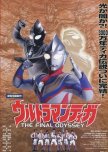
Ultraman Tiga: The Final Odyssey
0 personnes ont trouvé cette critique utile
A perfect extended ending
The Final Odyssey could have very easily screwed up what is already a perfect ending to a series, but this bridge between the outgoing Tiga and incoming Dyna packs the same emotional core and incredible storytelling that made Tiga one of the best Ultra shows, to begin with.Two years after the events of 'Ultraman Tiga', Daigo is forced to pick up another Dark Spark Lens in an attempt to stop three evils the once, dark Tiga worked with 30 million years ago, to stop destruction in Japan once and for all.
Everything about The Final Odyssey is bigger, badder and sleeker; the elongated runtime and larger budget that is afforded thanks to this being a feature-length movie mean everything is to the highest standard, top-notch in its design and execution. The widescreen presentation allows for an impressive variation of shots and set pieces, director Hirochika Muraishi outdid himself with this. It's gorgeous to look at through and through. The underwater fight between Tiga and Darramb is incredible but only equally matched by the final showdown against Camearra (I'll get to her in a moment) and the suitmation is very clean although I'm not majorly fond of the digital effects used to transform Camearra into darkness at the very end.
Seeing how much our cast has changed since the finale of Tiga, the relationship and impending wedding of Daigo and Rena make for a great personal motivation for the duo. Daigo's hesitation and self-doubt manifest in his desire to save the world one more time with Rena supporting and trusting him nearly every step of the way. Their decision to take up arms again is met with this gorgeous little sequence of minimal dialogue accompanied by an excellent musical score and dynamic camera. The chemistry between Hiroshi Nagano and Takami Yoshimoto is on full display here and you are totally engrossed in their story. The rest of the GUTS squad are all on fine form even if they aren't the starring party this time around but does serve as an equally nice introduction to the eventual successors making a big splash near the end.
With all the strength in its character writing, it's the film's villains that bring a fresh perspective to The Final Odyssey. We've seen Evil Tiga in the TV show and although he was only limited to the second half of a two-parter, Three ultimately evil Ultra's make the impact needed to give the film a world-ending and indeed universe-ending threat. Camearra, Darramb, and Hudra are all equally memorable for a multitude of reasons, but it's with Camearra where the real antagonist lies. Tiga's former lover from a bygone era, all the credit goes to actress Miyoko Yoshimoto for carrying that amount of sass and power into her suit performance as well. Catch me simping for her on an off day.
The excellent musical score from Tiga is carried over and Tatsumi Yano provides some equally beautiful new material as well as some repurposed older material from the show. Opening with Brave Love Tiga was an inspired choice accompanying the montage of notable moments from the TV show before beautifully transitioning into the film. Of course, the use of Take Me Higher is relegated to the end credits but as it always does, it makes an impact.
Overall, Ultraman Tiga: The Final Odyssey is a beautiful epilogue to Tiga as a whole, it sends our beloved characters off with gorgeous style.
Cet avis était-il utile?
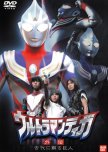
Ultraman Tiga Gaiden: Revival of the Ancient Giant
0 personnes ont trouvé cette critique utile
More like a DVD extra
Here's the thing about Ultraman Tiga Gaiden: Revival of the Ancient Giant, while it may be somewhat unremarkable as a little side venture and as an extension of the Ultraman Tiga story, the idea of setting a giant hero story in Stone Age Japan is an inspired one and an idea I could easily see being fleshed out again someday.Five thousand years ago, an ancient red-and-blue warrior of light defended a village against a giant, golem-like monster, but disappeared after that, where the Ultra is worshipped by superstitious locals as a guardian protector. In the present time of 2038, Super GUTS pilot Tsubasa Madoka (son of Daigo and Reina Madoka) pursues the monster Jomonoid, before suddenly getting dragged into a wormhole. Upon arrival, Tsubasa realized he's stuck centuries in the past, specifically, in the same village that Ultraman Tiga once guarded, and there are evil forces who want to prevent the re-awakening of Ultraman Tiga while re-summoning monsters of the past...
The original plan for Gaiden had been for Hiroshi Nagano to return as Daigo, but unfortunately, due to scheduling conflicts with his band V6's then-ongoing tour, he was unable to participate in the production. Thus, Daigo and Rena's son, Tsubasa Madoka, was created in his place. This isn't as major of a complaint as I'd initially thought because the new cast of characters is quite good fun, especially given the premise and setting with Tsubasa being quite a fun little protagonist even if he goes on a pretty similar journey to Daigo in learn to come to terms with co-existing as both himself and as Tiga.
There's a lot of lavish direction in this story thanks to the efforts of frequent Tiga, Dyna and Gaia director Hirochika Muraishi, who also helmed my beloved Final Odyssey. He makes great use of the larger budget the effects team were afforded and puts them to work with some stunning destruction sequences, the Kaiju vs Ultra fights are well staged, but there's the odd bit of front projection and CG that like most of the early Heisei Ultra shows hasn't aged very well.
The cast of Gaiden is all made up of returning actors from the entire TDG trilogy aside from Hiroshi Nagano and Takami Yoshimoto doesn't return as Rena either despite Letterboxd crediting both of them for some reason. Shôgo Yamaguchi is quite a fun protagonist in the form of Tsubasa and Yuri Yamazaki portrays a great badass in the form of the warrior Mahoroba, but I cannot get behind Makoto Kamijo as Amui who is borderline insufferable at times and pretty much robs Tsubasa of his heroic moments.
Tatsumi Yano retains much of the classic pieces from his Ultraman Tiga score and they all do their job just as well as they did in the TV show. Perhaps my biggest criticism is that both Take Me Higher and Brave Love Tiga are nowhere to be seen in Gaiden. Instead, Kodou~for TIGA~ is the theme and I'm honestly not a fan, it's one of the weaker songs that's been used to signify Tiga as a character.
Overall, Ultraman Tiga Gaiden: Revival of the Ancient Giant is ultimately little more than an extended episode of the TV show but its production more than carries it despite it feeling quite disheartening to not have the original cast in it. It's closer to an exciting DVD extra more so than a film.
Cet avis était-il utile?

Big ups to our boi Seven
Of all of the Shōwa Ultras, Ultraseven is the one typically talked about in the highest regard and, honestly, it's not hard to see why. Often stated to be not so subtly influenced by Gerry Anderson's Thunderbirds, Ultraseven takes elements from that and its earlier Ultra incarnations by striking a balance between the mystery of Ultra Q and action-orientated Ultraman. However, it equally heavily contrasts Ultraman before it as Ultraseven expands much more on the concepts of alien invasions and militarism. It's a magnificent series through and through pretty much setting the standard for the Ultra series to follow. It can be viewed standalone as originally conceived or as part of the larger franchise as a whole thanks to the series to follow…Also, you can't talk about this show without mentioning the banned Episode 12, From Another Planet with Love. Yeah, the Aiken Spell is pretty yikes in the same vein as those mutated humans at the end of Prophecies of Nostradamus but like Prophecies the story and surrounding elements are pretty darn good.
I'll probably end up watching Heisei Ultraseven one day, same with Ultraseven X but I haven't heard the best of things surrounding them.
Cet avis était-il utile?

Gets gud
Not the first in the Ultra series but one that shot it into the Japanese consciousness for years to come. The original Ultraman may show its age very early on with its rather backwards portrayal of society that contrasts heavily with what we know today, forced messaging and very limited budget, but from Episode 11 onwards you find the exact reason why this has remained a staple of Japanese Culture for nigh on 50 years.Ultraman is a myth that went on to inspire generations and we love it.
Cet avis était-il utile?
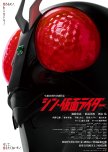
Pulpy Comic Book fiction done right
While he left our beloved Shinji Higuchi to handle directing duties on Shin Ultraman, Anno focused his efforts on Shin Kamen Rider and it's very much cut from the same cloth as its predecessors. Fast, stylish, cartoony and oh-so-charming, it opens with action and never slows down, not even afraid to fully embrace the camp and horrific qualities of its source material.I'll admit this is the tokusatsu property I am least familiar with (at the time of writing I've seen ZO, J, Shin Prologue and, more substantially, Den-O and Fuuto PI), but even to a more casual fan of the series, you can easily follow what is ultimately re-imaged episodes of the original show stitched together into a movie. I'm yet to watch the original but the number of side-by-sides I was seeing on Twitter after clips of it were leaked, shows that Anno really does take pride in his childhood influences.
Hyped stylised like the previous Shin movies, there's some very overbearing and pretty redundant CGI in places where practical effects would have been preferable and even cheaper, but it fits the same tone and energy of its predecessors. Anno's direction is great and features the same variety of angles and strange composition choices that make these so visually engaging. The hyper-choreographed fight scenes also help immensely, unafraid to go all the way to 11 with squishy violence.
With regular Anno collaborator Shirō Sagisu committed to Shin Ultraman, in steps Anime composer Taku Iwasaki and boy, does he do a stand-up job. I'm definitely gonna have to get the soundtrack to this the moment it's released, so many styles of music all coming together in a seamless blend of beauty.
While I ultimately feel that Shin Ultraman is the best of these Shin movies so far, Shin Kamen Rider is a very close second. Anno goes hell for leather here, amounting to a beautiful love letter to one of the grandfathers of Tokusatsu, having fun but not poking fun and fully embracing his inhuman worldview he's only ever touched upon in previous movies.
Cet avis était-il utile?

Shin Kamen Rider: Prologue
0 personnes ont trouvé cette critique utile
The original Kamen Rider Shin
What could have been a great deconstruction of the Kamen Rider franchise sadly falters due to its bare-bones plot, wonky writing and unlikable stock character archetypes. It's one of the only Kamen Rider productions to feature direct creative input from the original creator, Shotaro Ishinomori, the film takes a large amount of influence from the original manga run as well as Kamen Rider BLACK's manga.The film was intended as a treat for more adult fans of Ishinomori's original works by Ishinomori himself but due to his death in 1998, the series planned to continue the story of this prologue never developed leaving Shin in a weird limbo of existence. The problems presented in this film could have easily been ironed out had it been given the chance but the final product is extremely stiff and somewhat bland compared to the likes of ZO which would release the next year.
I'll be honest, I like a lot of this film's production aspects, the music is frankly brilliant and it is that nice transitional period between the synth-heavy 80s and hard rock 90s; the gore and practical effects are simply top-notch with a seriously gnarly transformation sequence almost like it was ripped from a Cronenberg film with a design of the titular character being equally Cronenberg-esque.
Overall, the film is a curious example of when early 90's visceral science fiction met a classic Tokusatsu franchise. Still worth watching but with tempered expectations.
Cet avis était-il utile?
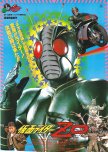
Love a bit of Amemiya
Given that Shin Kamen Rider is coming out next year, I really needed to dive into another of the big three Tokusatsu shows and this was usually the one pointed to as one of the best entry points of the franchise, Kamen Rider ZO is another fantastic film by Keita Amemiya that I can check off my watchlist. ZO feels like the by-product of what would happen if you threw Sam Raimi and Shinya Tsukamoto into a blender together, it's kinetic filmmaking and highly disturbing design that would give even someone like Guillermo del Toro nightmares. Brilliantly shot, written, scored, staged and acted, this is one of the best 48-minute-long films I've ever seen and has me eager to explore more.Cet avis était-il utile?
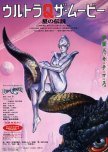
Ultra Q The Movie: Legend of the Stars
0 personnes ont trouvé cette critique utile
The missing link
Legend of the Stars feels like that missing link between Heisei Godzilla and Heisei Gamera, striking an otherworldly and transcendental balance in re-imagining Ultra Q for a whole new generation and who better to helm it than the franchise's most unique voice, Akio Jissoji. Legend of the Stars could realistically be considered the 2001 of the tokusatsu genre, mainly because this movie is pretty much a metaphysical examination of existence in a similar vein to Kubrick's film, just way more dialogue-heavy. It doesn't always hold together but Jissoji's visualisation is greater than the sum of its shakey parts, his direction and camera work are constantly engaging and ever-shifting with no two shots being the same. Combining aspects of Japanese mythology and a sci-fi mystery, Legend of the Stars is very much worthy of your attention even if you haven't seen the original show, it just drags its feet towards the end as if struggling to fill time and you'll have to put up with some substandard DVD mastering if you want to see it, it's crying out for an HD release. Come on Tsuburaya! Do it!Cet avis était-il utile?
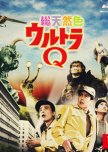
Where it all began
Ultra Q is very much the Japanese equivalent of shows such as The Twilight Zone and The Outer Limits. It's full of imaginative concepts and stories that when combined with the excellent production qualities of Eiji Tsuburaya you are left with one of the most unique shows of a lifetime. It's a tremendous blend of classic Tokusatsu science-fiction and horror that despite only being 28 episodes long, still leaves an impact. Of course, Season 2 of the show was long abandoned but naturally developed into the Ultraman series we all know and love today.Cet avis était-il utile?

Zone Fight Power!
While I do ultimately feel that Zone Fighter is nothing more than an attempt by Toho to cash in on Tsuburaya Production's territory, Zone Fighter eventually manages to do enough to stand out amongst the seemingly endless surplus of Ultra shows with its family of superhero's dynamic plus some memorable guest stars in the form of Godzilla and company.The evil Garogas plan to take over Earth with their army of giant Terror-Beasts. They are opposed by the Zone Family, hailing from a planet called Peaceland that the Garogas destroyed. The family uses a variety of exotic vehicles and weapons. Still, their best defence against Garogas is their oldest child Hikaru, who is able to transform into the giant Zone Fighter.
The problem with Zone Fighter comes a lot from the tone, less so the production. It's a show that gets confused often as to what it wants to be. Some episodes are great, others border on unwatchable. It's a series Toho isn't especially proud of and director Jun Fukuda when asked about the show in interviews refused to even comment on its existence. Not really a good sign for the show in general.
The visual effects work stands up quite well for the most part with a multitude of different talents lending themselves to the series. Teruyoshi Nakano for 10 of the 26 episodes. Koichi Kawakita for 8. Yoshio Tabuchi for 6. Shinichi Kamisawa, who also wrote for the series, 2 episodes a piece. The direction is hit or miss, the ones directed by either Ishirō Honda or Jun Fukuda tend to be the more interesting ones and there are even two later episodes directed by Kōhei Oguri of House fame. So the show is hardly lacking in the visual department.
Further problems stem more from its writing and characters than anything else. At times juvenile and childish other times dark and sinister, the more childlike episodes stick out a lot more, it doesn't help one of the main characters is a child and his friends make frequent appearances with some godawful child acting to boot. Kazuya Aoyama, later appearing in Godzilla vs. Mechagodzilla, as the titular Zone Fighter does pretty much carry the show for the most part alongside Shiro Amakusa even if his role is massively reduced to that of a mentor. The rest of the characters, especially the villains are very give or take.
The music by Go Misawa is fine overall, the main theme "Zone Fighter" and the insert song "Meteor Victory" however, are massive earworms that won't leave you alone no matter how hard you try to erase them. There's a large usage of horns and brass present throughout and it can get overwhelming at points.
What really got me interested was Zone Fighter's presence in the Shōwa era Godzilla timeline, taking place after vs. Megalon but before vs. Mechagodzilla. It features the likes of Godzilla himself, King Ghidorah making an appearance in two episodes duking it out with Zone Fighter and not Godzilla and ultimately remains the only monster to not be killed by either in the show and finally the final appearance of Shōwa era Gigan. What happens to Gigan in this is almost unacceptable in terms of how he's defeated by the villain's incompetence more than the abilities of Godzilla or Zone Fighter. My poor boy.
Zone Fighter is a very real oddity of Shōwa Godzilla. It doesn't utilise its unique selling point to its full potential, as the show always ensures that Hikaru remains front and centre as its main hero. As much as it would like to reassure you that Zone Angel and Zone Junior are a key part of the show, ultimately it's always Hikaru that saves the day whilst Angel and Junior are acting as support. It's a shame because the glimpses you see of these supporting characters taking centre stage show you exactly just how remarkable Zone Fighter could have been but it seems to have been destined to end on an unresolved cliffhanger which I imagine Toho have no intention of ending.
Cet avis était-il utile?
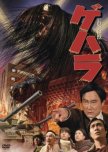
Chohatsu Daikaiju Gehara
0 personnes ont trouvé cette critique utile
So much hair
One of the better kaiju throwbacks I've seen in recent years, Geharha: The Dark and Long-Haired Monster owes a lot to the bigger name franchises containing a wealth of references and homages interspaced amidst its quirky camp. A short made-for-TV production by one of the more prolific modern Ultraman directors, Kiyotaka Taguchi, barely clocking in at 20 minutes in length, it's a fabulous little gem. The effects are a charming mix of old-school tokusatsu techniques and hilariously low-brow CGI which often add to the short's comedic value. While the stock library of music from the late Akira Ifukube fits quite nicely, Geharha is over just as it really starts to get going, leaving you wanting more and ripe for expansion in a feature-length presentation.Cet avis était-il utile?

Crazy Biker Road
Often hailed as Japan's Mad Max, Crazy Thunder Road becomes all the more impressive the more you learn about its production. Being a graduation project by director Gakuryû Ishii, it may be a narrative mess but the highly experimental style and limitless rockabilly energy produced a movie that radiates of pure aggression. There's a rough and ready charm to the effects and Kinji Fukasaku-influenced action, often drawing comparisons to Fukasaku's own anti-establishment protagonists with added grunge, grim and neon lights. The soundtrack is honestly my favourite part of the film, using songs by Japanese bands of the time in a near musical sense, it's combined with frantic editing and heightened emotions that immerse you completely within its context. Fast-paced, quick-witted and brilliantly stylised Crazy Thunder Road points toward a new style of genre filmmaking even if that direction is somewhat confused in execution.Cet avis était-il utile?
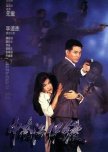
The Bodyguard from Beijing
0 personnes ont trouvé cette critique utile
A superior Bodyguard
The Bodyguard from Beijing is a bit of lively, unpretentious fun that takes Mick Jackson's The Bodyguard but replaces Kevin Costner with Jet Li and the weird musical numbers with kung fu. Corey Yuen directs with a visceral energy that wouldn't be out of place in a Wong Jing movie and although, the writing is certainly a bit on the hokey side Li's charisma as a real man's man shines through. With plenty of high-energy and varied gunfights to keep you engrossed, a solid musical score and a fantastic final fight to boot elevate what could have otherwise ended up as a rather undercooked and stale riff, yes it's rather generic but there's a heart-beating somewhere underneath its surface.Cet avis était-il utile?





